
2019 Boat Buyer's Guide
Let’s face it, fishing boats and wake boats alike are getting more and more expensive every year with no sign of slowing down. These increases are due to the growing cost of materials, labor, and technology. Now, you might be thinking to yourself, “Isn’t a long-term value boat and oxymoron?” Not always. Modern boats can give you years and years of long-term value when properly maintained.

The Death of the Starter Boat
As the cost of boats continues to rise, more and more consumers are looking to do more initial research, purchase their dream boat right out of the gate, and keep it for a longer period of time. Some boats are even being passed generationally! It’s more important than ever to be sure your boat purchase is well informed, well thought out, and executed with your best interests in mind.

How Do You Define Value?
“Value” doesn’t mean you should go out looking for the most inexpensive boat in the classifieds. In fact, purchasing a boat this way can end up providing less relative “value” than a more substantial investment into a boat that will last longer with fewer problems. At the same time, you shouldn’t take on purchasing the most expensive model possible either (unless that's what you're looking for). As a purchaser, you will need to determine what your priorities truly are and what price point you can afford comfortably. Your boat’s value stems from finding a boat that fits your needs as closely as possible, not the sticker price.

Resale Consideration
Luckily, modern fishing and towboats have begun to show a reduction in depreciation compared to their past counterparts. Modern boats are produced at a much higher quality than ever before and, with proper maintenance, are lasting longer and holding more of their value for a longer period of time. Some boats may even show such little depreciation that very little of your initial investment may be lost even 5-10 years down the road. This is especially true when buying used. Purchasing a pre-owned boat can effectively eliminate depreciation in some cases. Some pre-owned purchasers are able to turn around a few years down the road and sell the same boat for exactly what they bought it for initially.

Finding Lasting Value
Modern boats can be very complex and come with so many features like Autowake, the Swell Surf System, wake plates, fish finding tech, and more. These features can, at times, be difficult to keep track of and assign a direct “value” to. These features can make finding a long-term value more complicated especially when manufacturers are pushing the envelope every single year coming out with more and more great features. This, again, comes back to understanding your needs and choosing a boat that meets your budget and your needs, not choosing the highest (or lowest) sticker price.
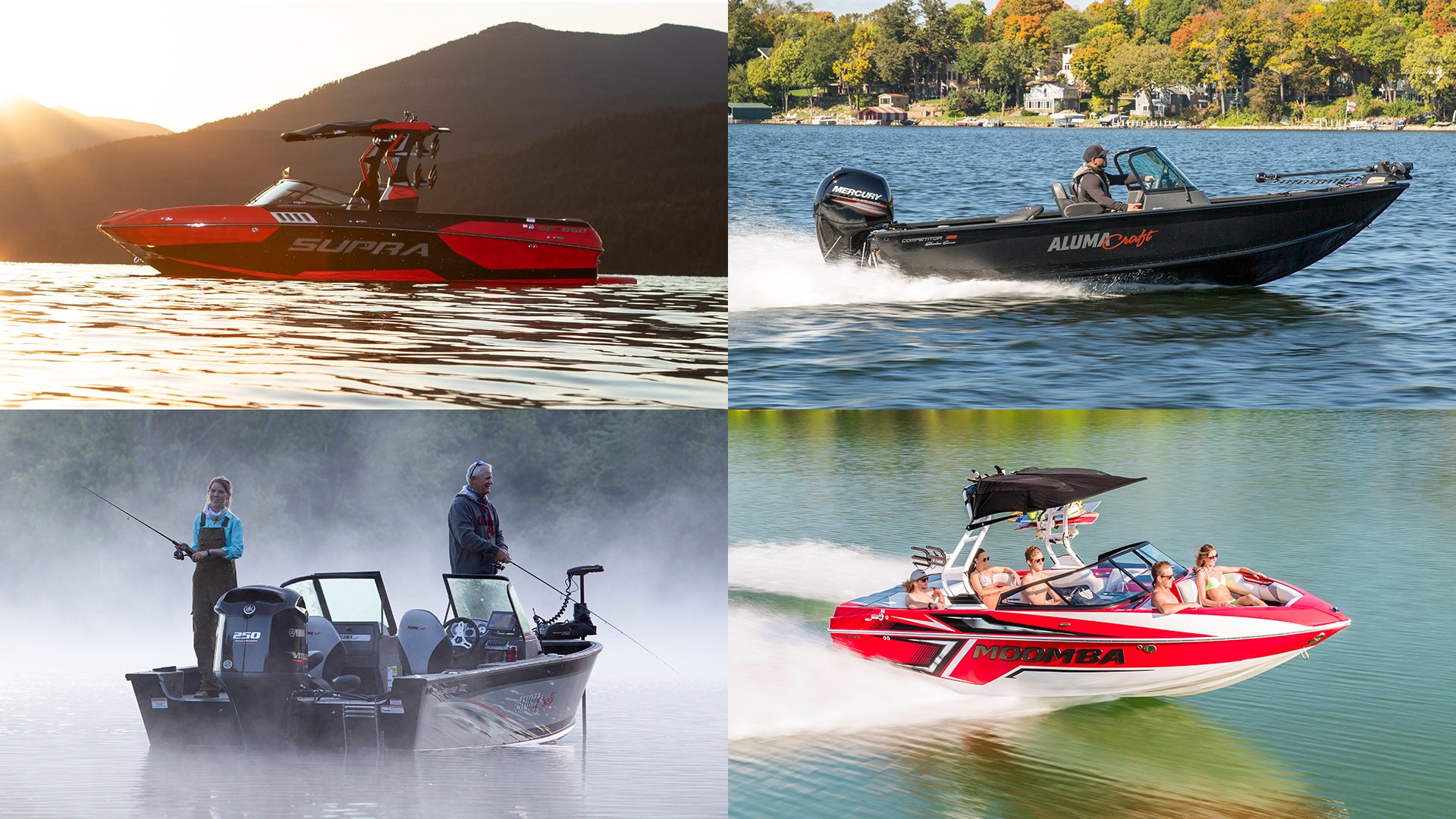
Determine Type and Class
One of the best ways to define value beyond your needs is accurate, fair comparison. When you compare, be sure that you are comparing boats that fall into the same type and class. This helps keep your focus on the features that matter to you and the price point you are searching for. You wouldn’t compare a Ferrari to a Geo, so why do it when it comes to purchasing your boat? Accurate comparisons of similar models can help you see where you feel the most “value” is added for your specific needs.

Decisions, Decisions
Before you can even begin to compare the features of your options, you will need to determine the type of boat meets your needs most effectively. Are you looking for an outboard, inboard, or sterndrive? A wake boat or a fishing boat? Think of shopping for a boat like purchasing a new vehicle. How much space do you need? What are your must-haves? What are your "nice-to-haves?" If you’re not sure which type of boat best suits your needs, step back and ask yourself honestly, “What do I want my boat to be capable of?” If you are still undecided, your local boat dealership can help you understand the intricacies and differences between different brands, models, and classes.
Keep it “Class”y
Once you have determined the type of boat you are looking for, it’s time to get into the weeds. The class of your boat can make the pricing and features of each boat vastly different. Understanding your needs becomes more important than ever when you begin to dig into the details of your dream boat.
Classes can be confusing, so we suggest making a pro and con list for each model you are interested in. This is an easy way to see where you are willing to compromise and what your “must-haves” truly lie. The three factors that traditionally determine a class of a boat are size, quality or functionality, and price. If you still aren't sure which class makes the most sense for you, come talk to us and our expert team will be sure to set you up with the right boat for the right price.
The Perfect Fit
A great place to start your comparisons can be the overall length of the boat. How much space do you need for passengers? Are you constantly on the water with family and friends or do you prefer a nice solo morning on the lake at your favorite fishing hole? Some modern wake boats are boasting capacities of 16 or more while others are better suited for 5-10. This can be one of the easiest places to begin your search and begin to define your class specifc needs.

Price & Performance
The number one rule in boating is never purchase an underpowered boat; you will regret it from the second you get on the water. Always be sure that the boats you are comparing have the same (or very similar) engines and that the engines meet your performance expectations.
A quick trick to determining if two boats are similarly priced for the performance they provide is to take the overall (dry) weight of the boat and divide it by the overall price. This is obviously not a perfect science, but it can quickly tell you whether one of the boats you are comparing are significantly over (or under) priced.
You may be asking yourself, “why are we worried about this math?” Though it should not be THE factor that influences your purchase, it will give you peace of mind knowing that the boats you are comparing have a similar price point if they are the same class. It is just meant to be a quick, in the ballpark calculation to be sure you are not paying too much for similar features and performance.
What About Anomalies?
With a calculation so general, you should not directly rule out an anomaly. Anomalies are common and can have many factors including hardware, quality of materials, fixtures, and “standard” features. When an anomaly occurs, don’t give up. Typically the differences here are easy to account for with some additional research into the specific features of each boat.

Value vs. Quality vs. Price
Everyone searching for a boat is searching for one thing: the best value for the money. However, you shouldn’t compromise quality just to save a few bucks or you will end up disappointed, and be on the hunt for a new boat in a couple of years. You don’t want to wind up with your upholstery falling apart, your wiring shorting out, or outdated tech holding your boat back from its true potential.
Investing a bit of extra money during a purchase can pay out huge dividends throughout the years especially when it comes to reliability. Time (and money) lost on repairs and tinkering should be time spent on the water and money spent on upgrades. This consideration is especially important when comparing pre-owned boats. You don't want to be stuck at the shop when you could be out enjoying your purchase.

Standard vs. Optional Features
Every modern boat company is trying to make their brand the most attractive to you, the buyer. Some play the price point game offering lower costs with less "standard" features while others include more fancy features focusing on higher price point "luxury" models.
These options can be a difficult balance as many of them come down less to performance and more toward the individual aesthetic and ease of use. You should quantify these standard vs. optional features between the boats you are comparing. How much are you really paying for that standard boat. Is there value to purchasing the “loaded” option?
Often to make these calculations, Google will be your best friend. Many items that come standard and optional on modern towboats and fishing boats can be found online as individual, aftermarket items. Then, set a dollar amount to your features. This can be a more in-depth way to compare your boat options feature for feature and determine which model (or class) delivers the most value for your specific use case and needs. You can also ask your dealer to explain the pricing differences and help you evaluate where the variations lie and which options will truly be worth additional investment.
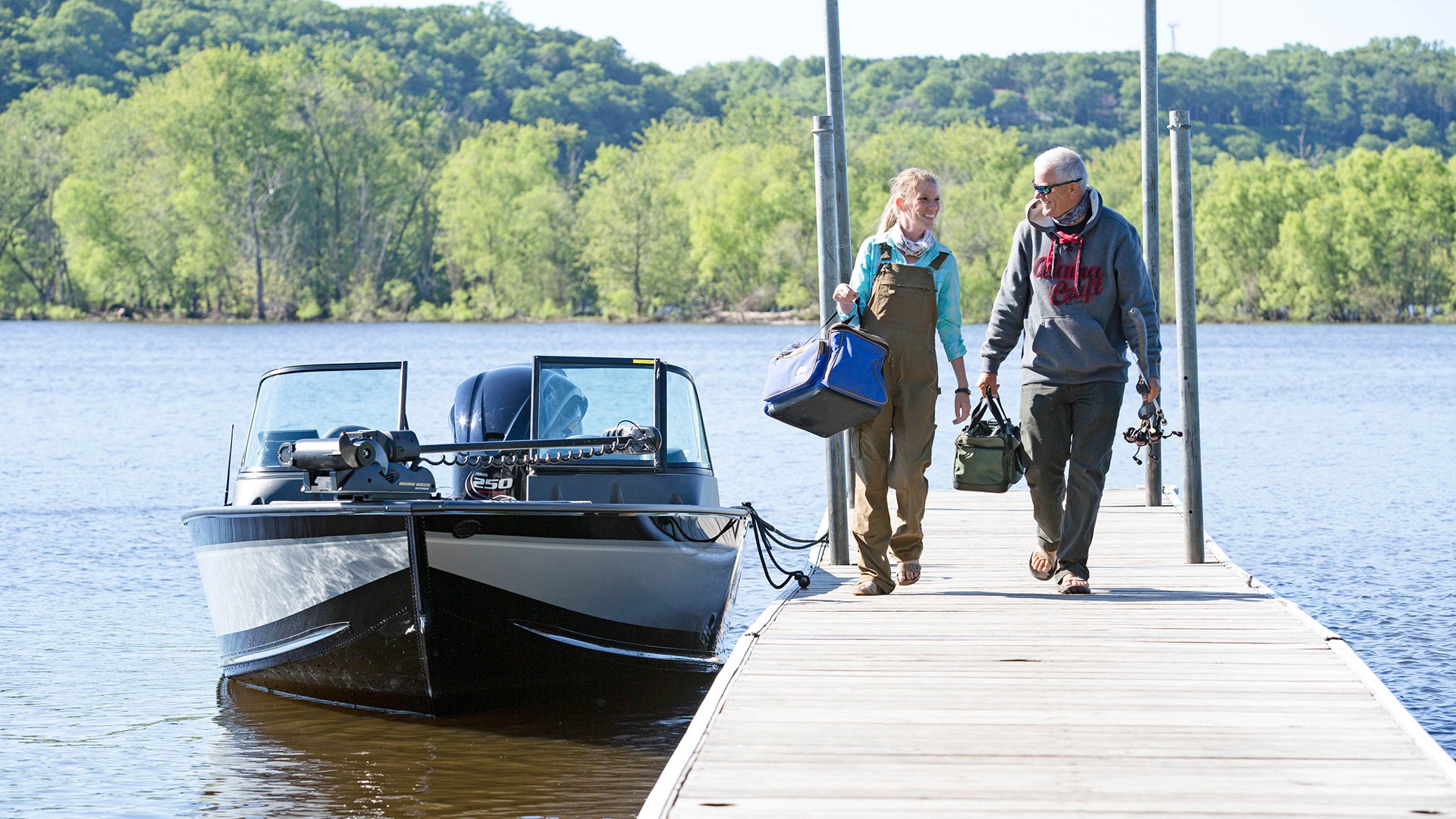
Overall Utility vs. Specific Usage
“Utility” can be difficult to compare especially when you are using your boat for a very specific purpose. This may not even be a consideration if you are looking for “the best wakesurfing boat” or the “best boat for trolling.” Often utility is a consideration for those owners that want to be able to take on multiple uses. Other utility considerations should include: does the helm seat feel comfortable? Is there enough room for your typical group on a day of boating? Is the boat easy to get into (this can be an especially large concern if your typical group includes elderly relatives or smaller children)? Does the storage meet your needs or was it made for ants? Answering no to these questions can signal a lack of utility in either the class or the type of boat you are looking for.
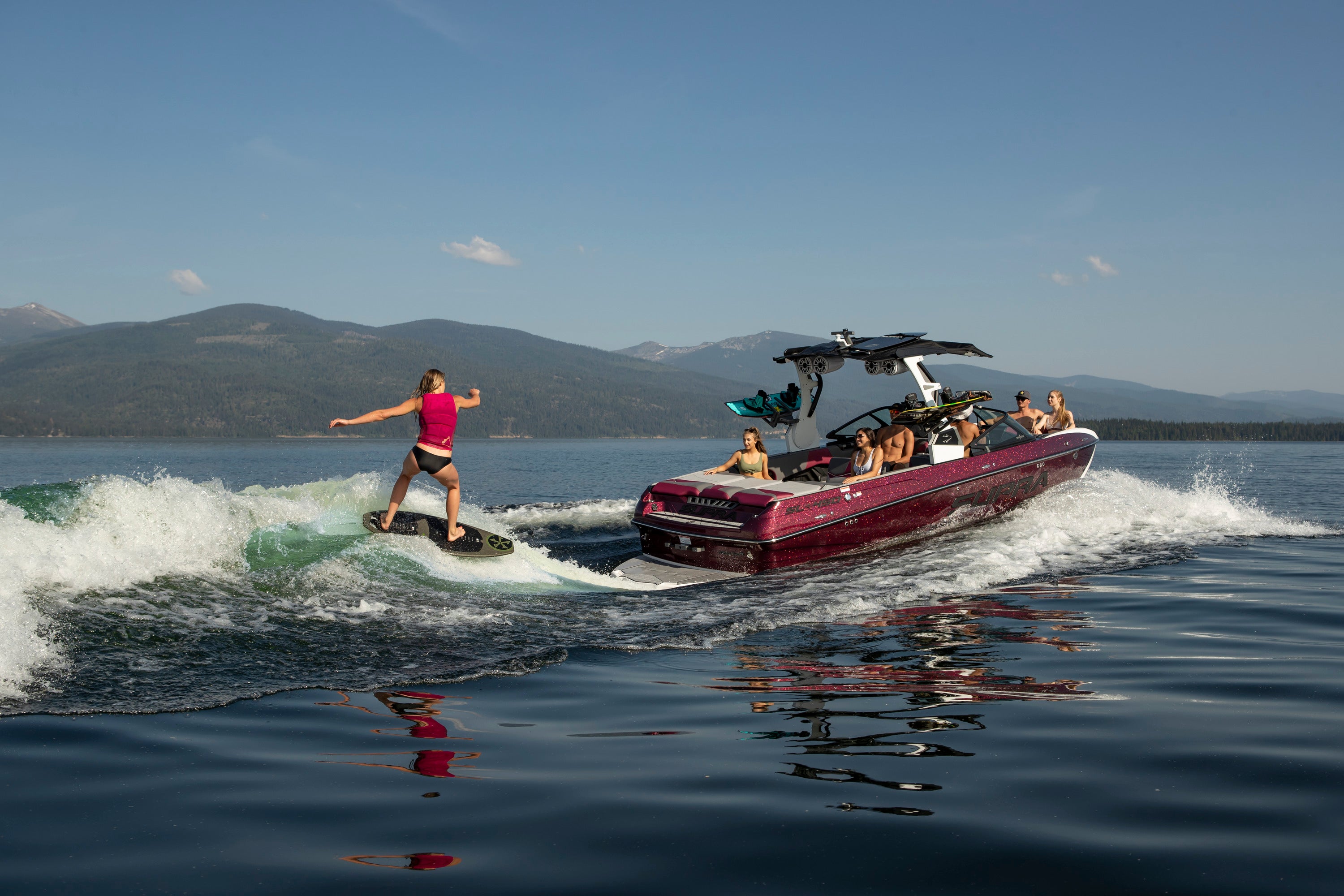
Performance, Fuel Economy, and Range
No one wants their first trip out with their new boat feeling like they don’t have the power they were hoping for. Understanding the proper power needed for your specific use case can drastically affect the pricing and performance of your options. When it comes to our Supra and Moomba lines at Marine Products, you’ll never need to worry. We option out most of the Supra boats we stock with the Roushcharged Raptor 575 by Indmar making sure that no matter what elevation you choose to surf, board, or ski in that you’re covered. If you’re interested in Alumacraft, you’ll never have to worry. You have total control over your motor selection and you can specifically dial in your power needs.
To answer your question of over vs. underpower, ask yourself, “what is my boat’s mission in life?” This will help you to determine what the most important performance needs for your situation are (i.e. cruising speed, MPG, overall range, time to plane, etc.). We can help you decide what your performance numbers should look like and how we can help you achieve your boating goals within your budget.
Though it may seem overkill, having the correct prop on your boat can make all the difference in the world. At Marine Products, we’ll help you decide which prop matches your performance standards most effectively.
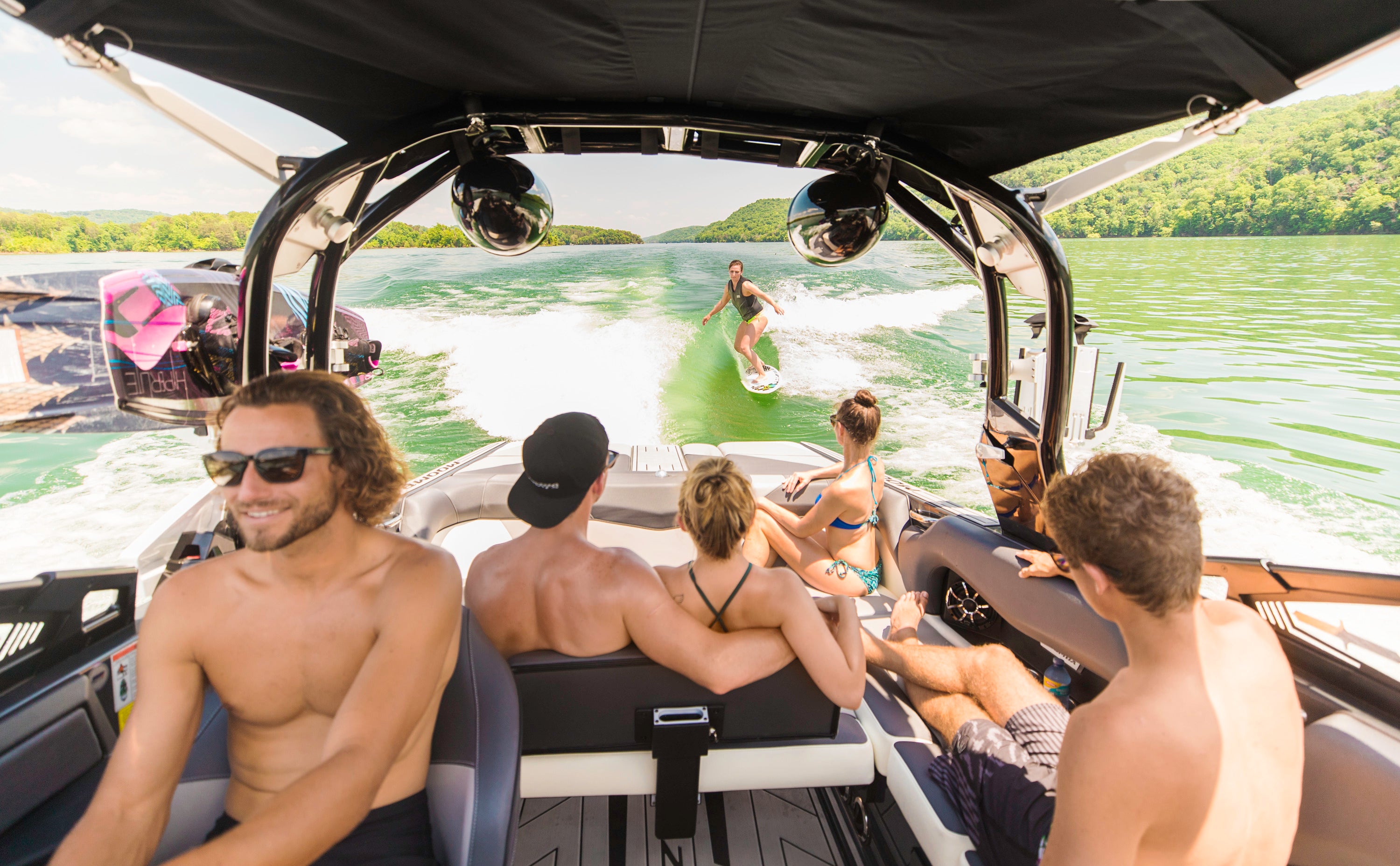
Warranty Considerations
Supra and Moomba boats come with a lifetime hull warranty and the entire Alumacraft line comes with a 20 year warranty and our outboards will vary in warranty length based on the manufacturer you choose. Warranty can be extremely important for a large purchase as it can save you thousands on maintenance if a major part fails. You don’t want to be stuck with a repair bill when a manufacturer warrantied part goes out.
Customer Service
When you purchase a new boat, you will also need to find a local dealership you can trust to not only set you up with the best boat for your needs, but that can also service your boat in a timely fashion. Dealer reputation is extremely important when it comes to your new boat purchase. Even the best boat brands can be a hassle to service if your dealership does not have a solid reputation and a fantastic service department.
Unfortunately, the purchase price of your new boat can also determine the quality of service you receive at some dealerships. Make sure that when you choose a dealership, they have a service staff that can get projects completed quickly and that your sales manager is responsive, addresses any concerns you may have, and is actively looking out for your interests no matter what the sticker price of your boat may be. A boat is an significant investment, make sure you’re not going in alone. Your dealer will be your source for issues, questions, concerns, parts, and everything in between.
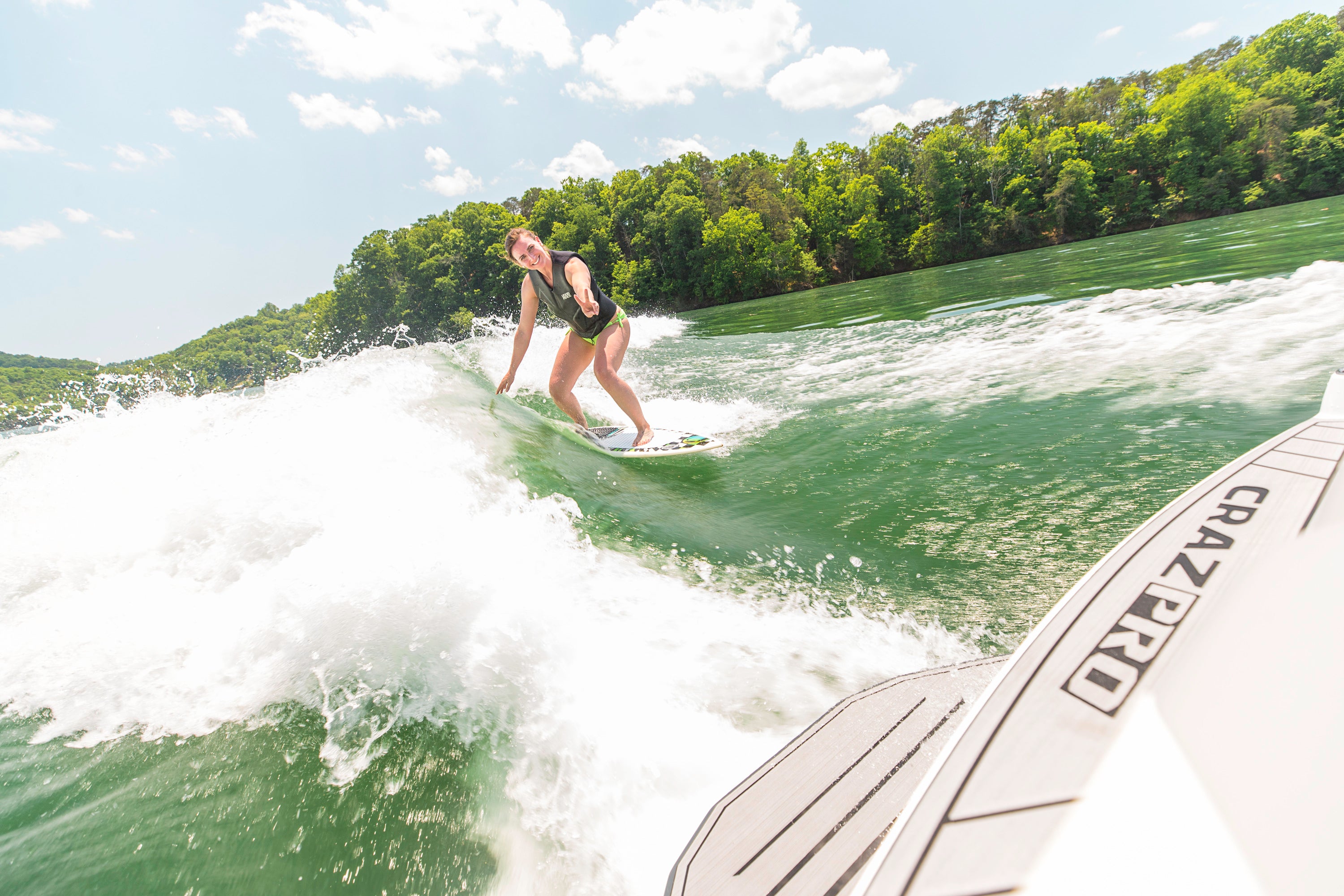
The Most Important Factor? You.
If you want to be satisfied with your boat purchase, you need to know yourself and understand what values mean the most to you (aesthetics, performance, features, tech, price). Be sure you’re always focused on thinking ahead. You may not want to be climbing up a ladder in 10 years, your family may be growing or shrinking, or you may be looking for the lowest cost to own. No matter what your priorities are, you should always buy a boat for the right reasons.
The importance of family time and a true passion for your chosen sport are two things that will never fade. For most of us, it’s about the memories we make in the boat more than the boat itself. Your children will get older and may have children of their own. If your boat has long-term value, you will be able to share the fun and memories of boating generationally. Nothing is more gratifying than realizing that your decision helped bring your family and friends closer together.
Ready to Pull The Trigger?
Once you have concluded your research and have decided on the towboat or fishing boat of your dreams, our experts can help you get into the perfect boat that is sure to meet your needs and help you make memories for years to come. Give us a call to set up your dream boat test drive today!



